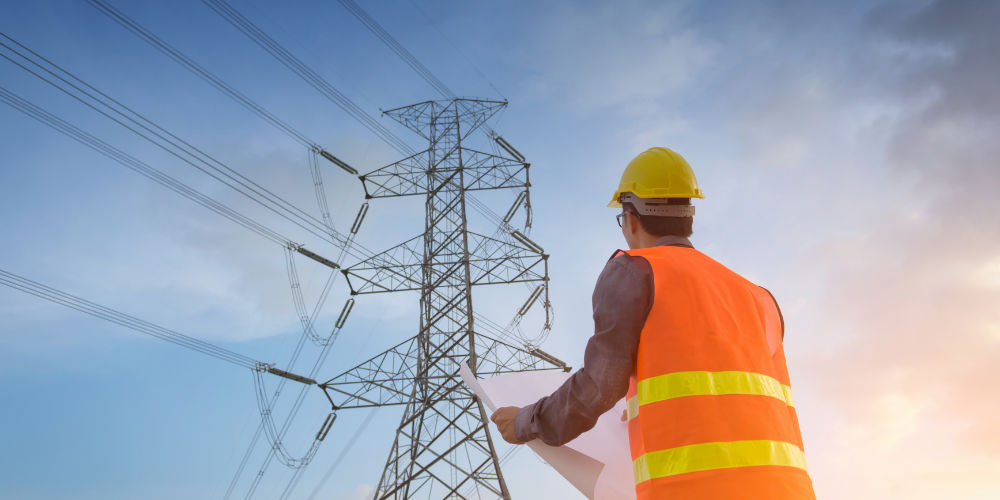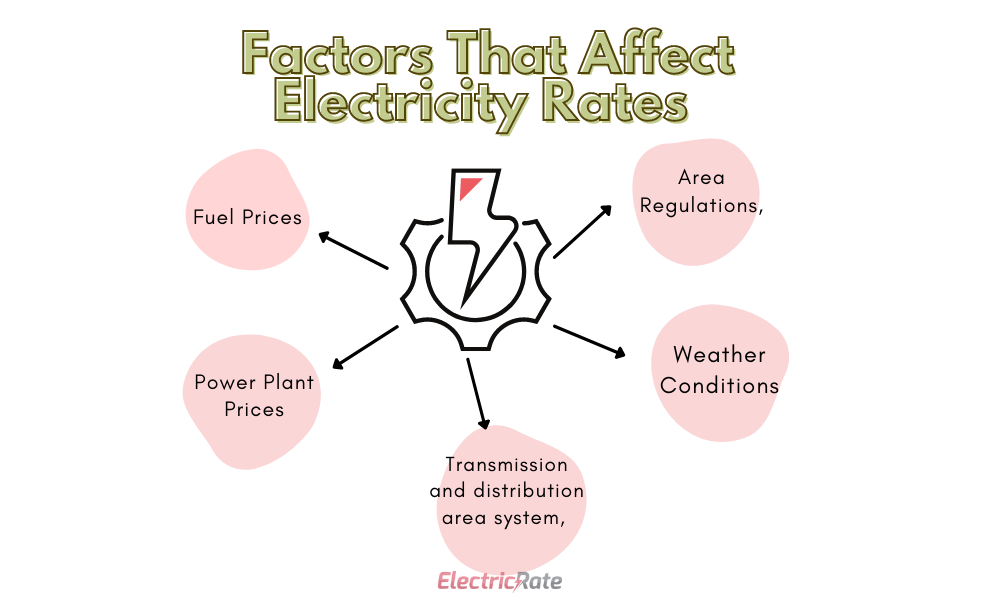Michigan Energy Rates Comparison in 2024

With the cost of electricity in Michigan being $0.1763 / kWh, this is one of the expensive states to live and consume power in. Compared to the national average of $0.1419, it is clear that Michigan residents pay 19.5% more on their electricity bills than an average American. Read on about electricity rates in Michigan, Michigan utilities, and power deregulation.
Average Electricity Rates In Michigan
Your electricity rate can change several times a day, and in fact, it does. However, electricity prices are capped so that consumers do not take the full blow of average residential electricity rate fluctuations. If you compare them to the national average, Michigan residents pay higher electricity rates be it the average residential electricity rate, commercial or industrial power.
Compare average electricity rates in Michigan vs. the national average:
| Electricity Type | Michigan Rates Per Kilowatt Hour | National Average Rates Per Kilowatt Hour |
|---|---|---|
| Residential Electricity | $0.1763 | $0.1419 |
| Commercial Electricity | $0.1224 | $0.1176 |
| Industrial Electricity | $0.0785 | $0.0771 |
Source: Energy Information Administration – EIA – Michigan
Is Energy Deregulated In Michigan?
Yes, the energy market is deregulated in Michigan. However, energy deregulation has not been fully implemented, as parts of the market are controlled by the Michigan Public Service Commission. Usually, this cap is reached before the end of the year. This power market deregulation model is known as the hybrid model – the government controls some parts of the energy market.
What Makes Up The Electricity Cost in Michigan?

The electricity cost in Michigan is composed of several factors and expenses related to generating electricity, operating and maintaining the infrastructure and delivering power to your Michigan household. Unfortunately, a Michigan household pays more than the national average. Your electricity bill always reflects all these costs:
- Supply Fees,
- Delivery Fees,
- Operating Costs, and
- Effects of Weather.
Supply Fees
Supply fees only add a few cents per kilowatt-hour but manage to generate electricity (through renewable and non-renewable sources such as coal) and deliver it to your local utility for that limited money. All power, including industrial, commercial, and residential energy is made in power plants, which burn different fuels, such as natural gas, to produce electricity equal to your consumption. On the other hand, consumption of renewables needs no fuels, but the high initial costs are rather paid over years of service.
Delivery Fees
Michigan electricity rates are also influenced by the somewhat regulated delivery fees. Distribution or delivery fees are all the costs that your local utility company incurs to distribute the energy to your home. These costs also include the green premium that your utility company might be paying to the nation to stay in accordance with the green efforts by the state.
Operating Costs
Operating costs are all the costs that your power provider might incur as a regular part of running their business. Your electricity bill will, therefore, include costs connected to customers service, management, and other fixed expenses.
Effects of Weather
Weather can also influence state and national average electricity rates in your area. Power suppliers, when generating electricity depend heavily on the weather, which can differ across the nation. Windy and sunny days are particularly suited for renewable power generation. On the other hand, non-renewable electricity sources depend on mild temperatures, as weather extremes can put additional strain on power plants as residential electricity consumption skyrockets during very cold and very warm days.
Electricity Providers in Michigan
Since the energy market has been deregulated in Michigan, the electric choice is all up to you. This means that you can choose which electricity provider you want to purchase electricity from, while the electricity is always delivered to all the consumers in your area by the same utility company. So, while you can choose your electricity provider based on the per-kilowatt-hour price and fees, you cannot choose your local utility company.
Comparing Electricity Rates in Michigan
When making your electric choice and the price of electricity in your area, you should understand your consumption (in kilowatt hour-kWh) and the kind of power you need. In regulated markets, the state has a big say in electricity prices and delivery, but in Michigan, your electricity prices are determined by electric cooperatives and power consumption and production trends. Your utility also has a slight say in power price, so make sure to check out the following price of electricity for residential, industrial and commercial customers.
Residential
Residential electricity in Michigan is 11th most expensive in the nation. This means that comparing electricity prices is of paramount importance when buying power in Michigan cities, as you can expect to save hundreds of dollars a year if you compare providers based on how much power you consume.
| Energy Company | Residential Electricity - Highest per kWh | Residential Electricity - Lowest per kWh |
|---|---|---|
| Alpena Power | $0.1442 | $0.1266 |
| Consumers Energy | $0.2043 | $0.1777 |
| DTE Electric | $0.1973 | $0.1819 |
| AEP (I&M) Combined | $0.1943 | $0.1609 |
| Northern States Power | $0.1557 | $0.1261 |
| Upper Peninsula Power | $0.2548 | $0.2072 |
| UMERC (WEPCO) | $0.1693 | $0.1399 |
| UMERC (WPSC) | $0.1594 | $0.1234 |
Source: Michigan – MPSC rates
Historical Data of Electricity Prices in Michigan
If you live in MI, you have noticed that the energy prices keep going up. This is the reason why people decide to go for solar energy. Here is a table of historical data of electricity prices. Future prices are expected to follow the same trends:
| Date | Highest Average Price - dollar cents per kilowatt hour | Lowest Average Price - $ per kWh |
|---|---|---|
| January 1st, 2011 | $0.1576 | $0.1286 / kWh |
| January 1st, 2012 | $0.1673 | $0.1361 / kWh |
| January 1st, 2013 | $0.1605 | $0.1386 / kWh |
| January 1st, 2014 | $0.1675 | $0.1384 / kWh |
| January 1st, 2015 | $0.1704 | $0.1403 / kWh |
| January 1st, 2016 | $0.1732 | $0.1429 / kWh |
| January 1st, 2017 | $0.1852 | $0.1553 / kWh |
| January 1st, 2018 | $0.1865 | $0.1556 / kWh |
| January 1st, 2019 | $0.1793 | $0.1483 / kWh |
| January 1st, 2020 | $0.1794 | $0.1493 / kWh |
| January 1st, 2021 | $0.1863 | $0.1567 / kWh |
About Michigan

MI is a state with 10 million inhabitants. 10th largest by population size and 11th by area, it is a state in the Midwest of the USA. The name Michigan derives from ‘mishigami’ or ‘great water’ in the language of the Ojibwe tribes.
History of Michigan
In its early history, the territory of MI was populated by the Algonquian peoples. Once the settlers arrived, it was the French who first laid their hands on the territory, intending it for their New France. After a lot of turmoil, the territory went back into the USA’s hands in 1813.
Income Statistics for Michigan Households
The average per capita income in MI is $52,987. The median family income is $75,000, which is $5,200 lower than the national average. This puts any Michigan household in an unfair situation, especially considering the high rate per kilowatt-hour of power and a somewhat lower consumption, especially in comparison to states such as Texas.
Other Utilities in Michigan
There are other utility companies working in Michigan as well. Gas, water, recycling and garbage collection are all the utilities available in the state. Read on for more information.
Gas
Michigan Gas Utilities are for example the largest gas utility working in the state. Some other utility companies delivering gas include:
- Aurora Gas Company,
- Citizens Gas Fuel Company,
- Consumers Energy Company, and
- Xcel.
Water
There are hundreds of water suppliers working in MI. Detroit area gets its water from Detroit Water & Sewage Department, while Lansing gets its water from Charter Township of Lansing. You can check out the complete list of water utility companies in Michigan.
Recycling
Recycling and Garbage Collection is organized by every individual city and town in MI. For the best information on how garbage collection is regulated in your area, contact your local municipality office.
FAQs
What is the average electric bill in Michigan 2020?
The average electric bill in Michigan is around $109 per month, $6 lower than the national average. This puts Michigan in the 33rd place in the country by the electric bill. Electricity in Michigan does not come at a low price, so many people try to be more efficient with their electricity use. Texas electricity rates, for example, are much lower.
What is a good kWh rate?
The average Michigan electricity price is $0.1763, so any rate lower than or equal to this rate is a good kWh rate. You can also estimate whether you are paying a good electricity rate by your monthly bill. An average MI household uses about 656 kWh of electricity per month, 237 kWh less than national average. So if your monthly bill is much higher than the average $109 monthly bill, you may be overpaying for your electricity.
What uses more electricity fan or AC?
An AC unit uses more noelectricity than a fan. While a fan simply moves air around the house, the AC does the same and has to cool it at the same time. This added work means more electricity consumed and may result in higher monthly bills. Make sure to keep your AC off for most part of the year.
Why is Michigan electricity so expensive?
There are three main reasons why Michigan electricity is so expensive:
1. Outdated infrastructure with high maintenance costs,
2. Supply vs. Demand problems,
3. Periodically high consumption – during summer and winter.
These factors combine together to bring about a high average electricity rate, a bit higher than the national average.
Conclusion
While Michigan electricity rates may be unexpectedly high now, in the future this may change, as the deregulation takes its tall. More power providers mean more supply options and a demand for low electricity rates is sure to drive down the current electricity price. Furthermore, taking care of the consumption of electricity on the customers side can save a substantial amount of money on residential electricity.
Updated on
